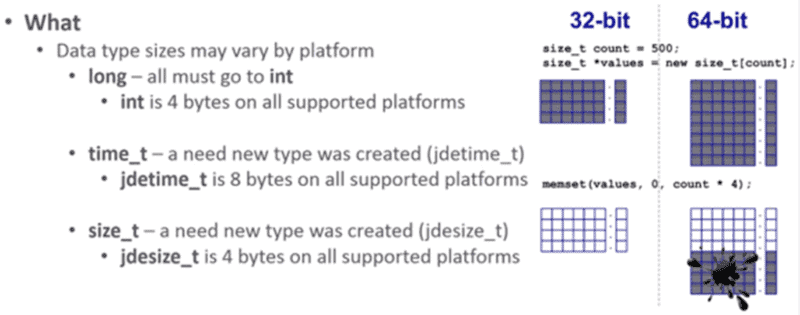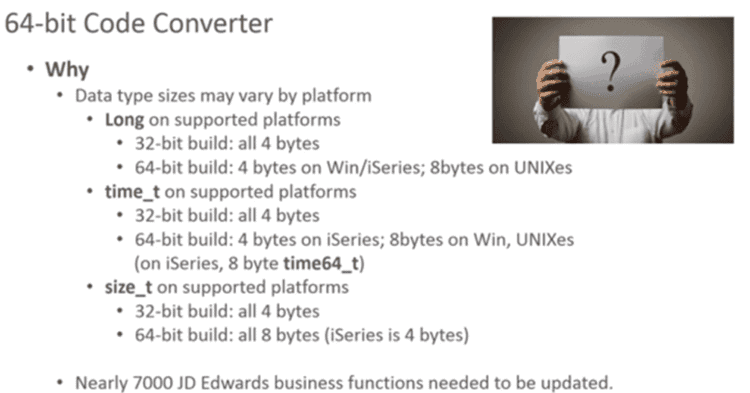JD Edwards EnterpriseOne
with 64-bit Processing
I’ve been extensively researching the capabilities of the 64-bit processing within JD Edwards for one of our customers who is planning to upgrade to version 9.2. In this article, we explore the importance of using JD Edwards 64-bit processing, and the performance capabilities of this tool.
JD Edwards 64-bit Processing
It is quite interesting to know how the 64-bit processing works in JD Edwards, and how it improves overall performance. Oracle has supported vendor 64-bit hardware, operation systems, databases, and Java for many years. Additionally, HTML Server, AIS Server, Orchestrator, and other Java-based components are 64-bit enabled as well.
Image retrieved from: www.learnJDE.com
With tools release 9.2.3 and application release 9.2, JD Edwards now supports 64-bit processing for the Enterprise Server and Development Client. While 64-bit processing is not mandatory, Oracle highly recommends all customers create plans to transition to 64-bit processing in the near future. Oracle has provided this information through various channels. For this article however, I’m summarizing the key details specifically for the JDE customer.
Reasons to Move to JD Edwards 64-bit Processing
There are multiple important reasons to make the transfer to 64-bit processing in the JD Edwards platform:
Image retrieved from: www.learnJDE.com
Impact to the system
Technical details on the 64-bit conversion
Oracle recommends upgrading to Tools Release 9.2.3/32-bit first, then upgrading to 9.2.3/64-bit to avoid issues. Please note that all out-of-the-box business functions must be converted from 32-bit to 64-bit. Custom business functions will not be converted through the automatic process. On-demand UBE (R9664CONV) should be ran to convert them.
Image retrieved from: www.learnJDE.com
The code conversion process will search and replace the old data types with existing and new data types (jdetime_t and jdesize_t). Following data types will be replaced during this conversion process.
Image retrieved from: www.learnJDE.com
JD Edwards 64-Bit Processing is an Eventual Must
For processes pushing out-of-the-box functions, upgrading to 64-bit processing is a critical implementation to your ERP system. Our team of JD Edwards subject matter experts can assist with upgrading your current version of JDE, while ensuring all internal functions and tools are up to date as well.
Looking For More on JD Edwards?
Explore more insights and expertise at smartbridge.com/jdedwards.
There’s more to explore at Smartbridge.com!
Sign up to be notified when we publish articles, news, videos and more!
Other ways to
follow us:





